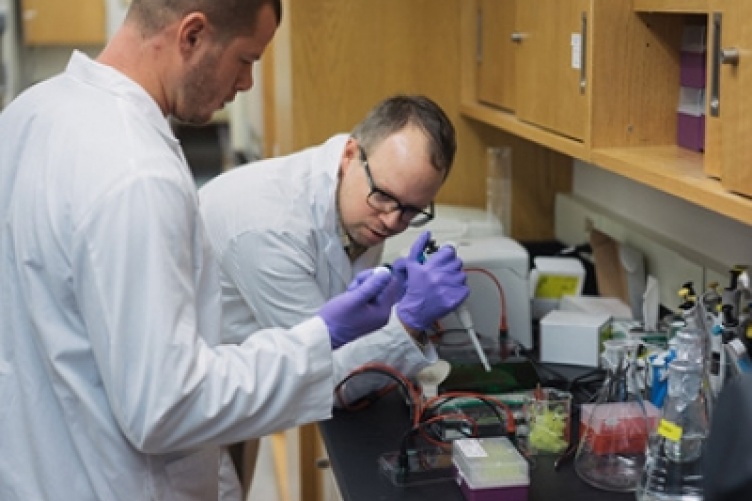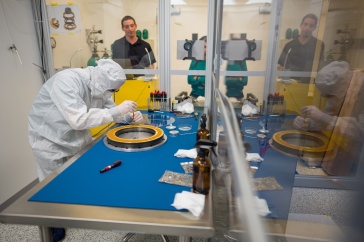
Starting in fall 2015, UNH Manchester will begin offering a new Bachelor of Science degree program in biotechnology for undergraduates.
The biotechnology program at UNH Manchester will provide advanced molecular biology training that will prepare students to enter the workforce and for entrance into graduate and professional programs. The program covers a wide range of topics that are essential to a foundational biotechnology education, allowing students to learn about genetics, organic chemistry, biochemistry, molecular biology and more.
“The biotechnology program at UNH Manchester will focus on practical skills,” said Kyle MacLea, Assistant Professor of Biological Sciences. “Students will customize their degree by choosing upper level courses in three areas; advanced biology, microbiology, and lab techniques. They’ll also be given the opportunity to have a vast amount of hands-on experience in our new state-of-the-art labs where they can learn cell culture, techniques for studying nucleic acids and proteins, genomics and more – everything that’s in common use in real-world labs. No schools in the area have this level of detail to their biotechnology program, and we’re proud to be the first.”
As part of UNH Manchester’s commitment to the cutting-edge field of biotechnology, the university doubled its lab space in a move to 88 Commercial Street in spring 2015. The university now has seven laboratories: general biology, advanced biology, microbiology, general chemistry, organic chemistry, cell culture, as well as a microbiology research lab. Labs are stocked with the latest equipment for biotech students to develop their practical skills.
All students in UNH Manchester’s biotech program will complete an internship or a senior Capstone research project, allowing them to get real-world lab experience, develop marketable skills such as team-building and critical thinking, and network with New England’s many biotechnology industry professionals.
The planned course sequence leaves students plenty of space to take elective courses of their choice to fine-tune their degrees, which can result in a minor if desired. Even programs that are not in the scientific realm are available to them, in subjects as diverse as business, education, psychology, communications, history, English, computer information systems, and more, to better customize the program for each student. Students can also opt to create self-designed independent study projects as well.
“Biotechnology is a quickly growing industry with a projected job growth of 10% from 2012-2022,” said Patricia A. Halpin, Assistant Professor of Biological Sciences.. “As the biotechnology industry continues to grow and evolve, we look forward to engaging our students in new possibilities to further tailor their biotechnology degree program and keep them up to date on the latest advances. We want them to have the skills needed to be competitive in the ever evolving field of biotechnology and be able to take advantage of absolutely everything we have to offer here at UNH Manchester.”

















































